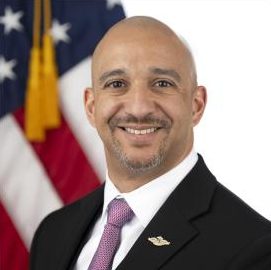Why IHPI
As a society, we face a persistent addiction crisis and rising costs. Evidence for ibogaine’s potential is growing, but without clear coverage pathways, reimbursement codes, and safety standards, research does not translate into access. Veterans, a high-need and bipartisan cohort, highlight both the urgency and the opportunity for responsible adoption.
IHPI closes this policy and payment gap. We turn clinical signals into clear rules for who qualifies, where care happens, how it is financed, and how safety is ensured.
What We Do
We are a neutral, evidence-based, implementation-focused institute housed at Delphi. Our work translates research into payer policy, CMS implementation strategies, and clinical delivery models that health systems can adopt and scale.
Coverage playbooks
Define who qualifies, where care occurs, and what outcomes matter. Produce payer-ready criteria, prior authorization rules, and coding routes that enable structured pilots and early coverage decisions.
Health economics
Build clear models showing potential cost offsets, utilization changes, and risk. Provide inputs and scenario plans that payers can drop into actuarial workflows to inform benefits, budgeting, and procurement.
Delivery blueprints
Map residential, outpatient, and hospital pathways with safety guardrails, staffing models, and quality assurance processes. Standardize monitoring, exclusions, and reporting to support responsible rollout and evaluation.
Veterans first
Launch pilots in a credible, high-need cohort. Align VA-adjacent partners and community providers to demonstrate feasibility, refine protocols, and create replicable adoption pathways.
How We Work
Neutral & Evidence-Based
Independent analysis, clear methods, and verifiable assumptions that decision-makers can trust.
Implementation-Focused
Payer-ready tools, plain-English templates, and operational guidance designed for near-term pilots and coverage decisions.
Collaborative & Catalytic
Veterans-first approach to align stakeholders, reduce risk, and create replicable pathways for broader populations.
Who We Serve
- Payers and Medicaid programs
- Health systems and provider networks
- Veterans’ organizations and federal partners
- Philanthropic and policy innovators
- Therapeutic developers and service providers
Advisors

Andrea G. Barthwell
MD, DFASAM
Former deputy director for Demand Reduction at the White House Office of National Drug Control Policy, Dr. Barthwell is a past president and Distinguished Fellow of the American Society of Addiction Medicine.
She founded Encounter Medical Group and serves as a director at Two Dreams, a comprehensive addiction treatment system. She also leads EM Global, a health-policy consultancy, and has chaired major philanthropic efforts focused on the opioid crisis, including the Foundation for Opioid Response Efforts.
Her career blends clinical leadership, national policy experience, and program implementation across treatment settings.

Eric Bailly
MA, LPC, LADC
Founder of NorthStar Behavioral Health Advisory, Bailly advises providers, payers, and health systems on operational efficiency, payer contracting, and strategic growth. He also serves as Resident Scholar at Concordia College, developing addictions-counseling curricula and teaching on U.S. healthcare delivery.
Previously, he was Senior Director at Third Horizon Strategies, leading the Alliance for Addiction Payment Reform. Before that, he spent 15 years at Elevance Health (Anthem) advancing enterprise SUD and opioid strategy.
A licensed professional counselor (ND/CO) and licensed alcohol and drug counselor (MN), he holds an MA in Counseling Psychology from the University of Colorado Denver. His work centers on payment reform, benefit design, and cross-sector implementation.

Leith States
MD, MPH, MBA, FACPM
A mission-driven physician-executive, Dr. States has led transformation across the battlefield, the boardroom, and the Beltway. As a board-certified preventive-medicine physician and federal health leader, Dr. States has served as Acting Assistant Secretary for Health (ASH) and Chief Medical Officer in the Office of the Assistant Secretary for Health at HHS.
His portfolio spans behavioral and mental health, substance-use policy, and cross-agency public-health strategy. He earned his MD at UC San Diego and MPH at Loma Linda, and is recognized for translating evidence into national policy and operational guidance across OASH program offices and interagency partners.

Kenneth Tupper
PhD
A policy consultant, scholar and educator, Dr. Tupper provides guidance on public health and transformative education, with a particular focus on mental health, substance use and psychedelic therapies. He is currently a Collaborating Scientist with the Canadian Institute for Substance Use Research and an Adjunct Professor (School of Child and Youth Care) at the University of Victoria.
He has previously held an adjunct appointment at UBC’s School of Population and Public Health, as well as leadership roles with the British Columbia Ministry of Health and the BC Centre on Substance Use.
His publications, talks, and advisory work focus on evidence-informed psychedelic policy, education, and stewardship for innovation across healthcare systems and communities.



